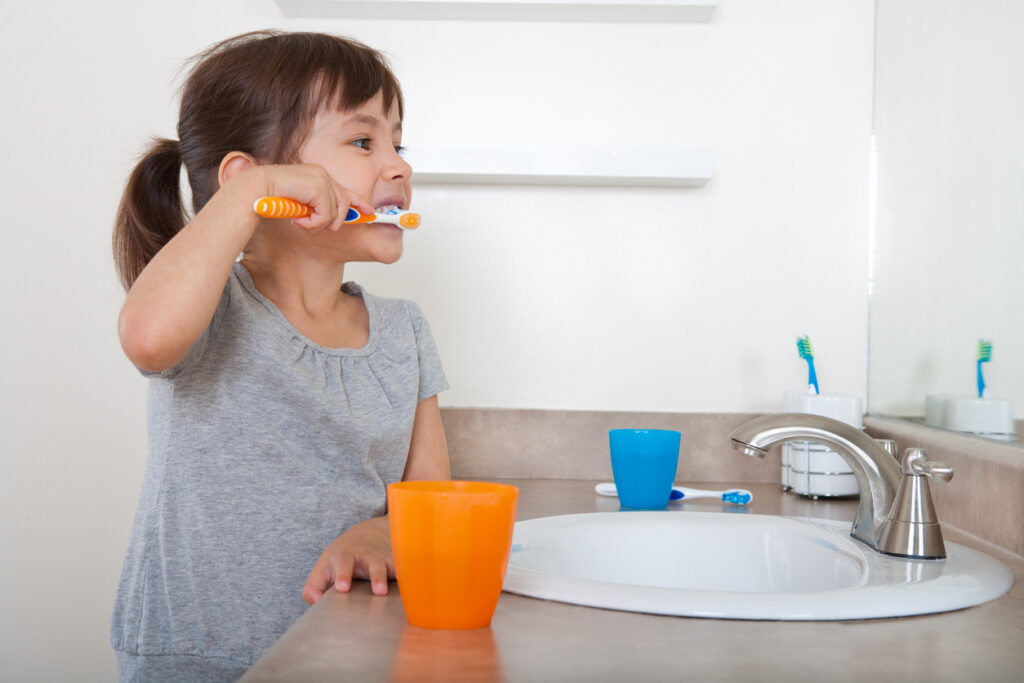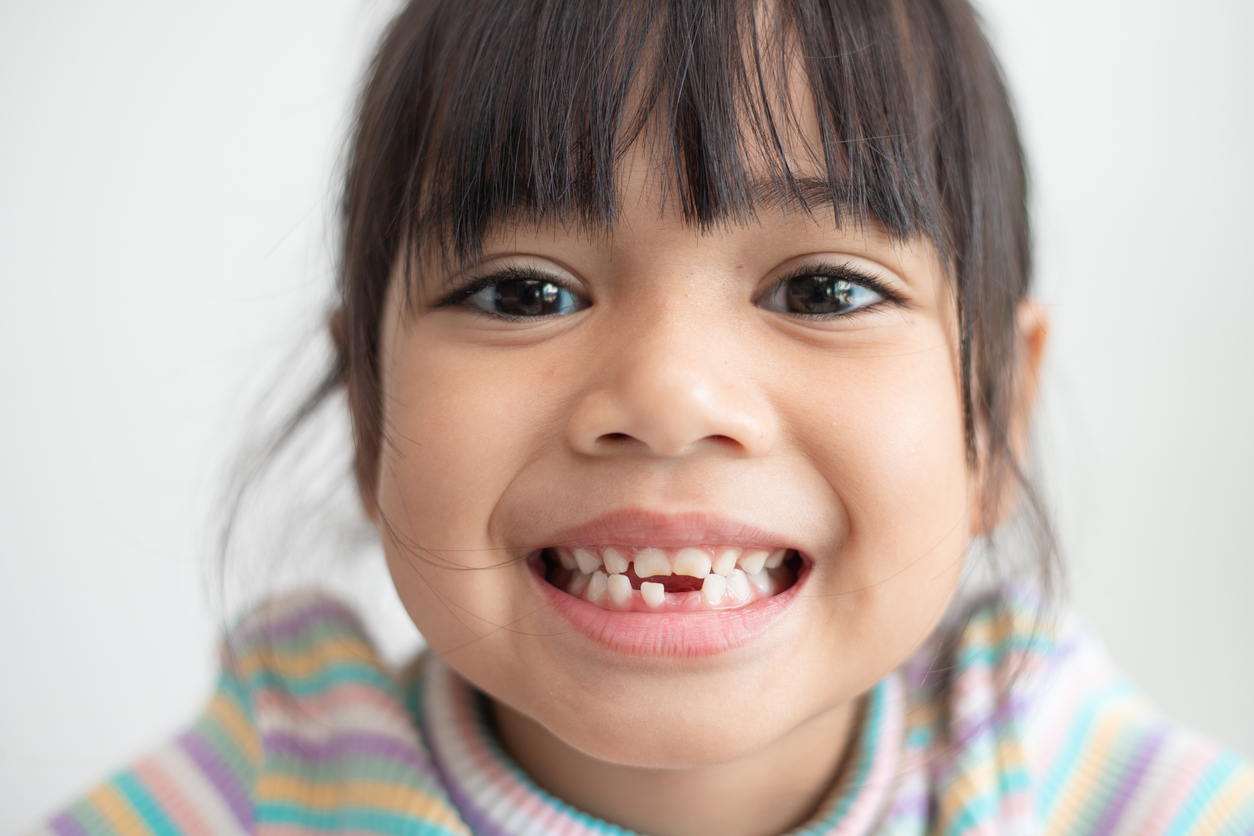One of our biggest joys is beginning to treat our current patients’ children. There is nothing more exciting than that first appointment with patients we have been treating for years and now we get to begin seeing their children. Not only is that first visit exciting, but there are many other milestones coming your way as parents as your kiddos grow. One of many milestones is the loss of their baby teeth.
Especially as new parents this can be unknown territory, leaving you with many questions about what to expect, what’s normal, what’s not, and when to see a dentist. Let us guide you through understanding loose baby teeth, what to expect with tooth loss, and how to handle situations where a tooth falls out before it’s naturally loose.
Understanding Baby Teeth and Tooth Loss
The Role of Baby Teeth
Baby teeth, or primary teeth, play a crucial role in your child’s oral development. They help in chewing, speaking, and holding space in the jaws for permanent teeth that are growing under the gums. And yes they are important. One of the most common questions we hear is, “Are baby teeth even necessary or important?” Even though your child will loose their baby teeth they serve a critical role and therefore proper oral hygiene is essential, even for baby teeth. Learn more about the importance of baby teeth here.
Timeline for Tooth Loss
Children typically begin losing their baby teeth around age 6, but it can vary. The process usually starts with the front teeth (incisors) and continues until the child is about 12 years old, by which time most children have their full set of permanent teeth.
Remember, every child is unique so your child may lose their baby teeth sooner or later in life. Always consult your dentist if you have any concerns about the timeline in which your child is losing their teeth.
Loose Baby Teeth: What to Expect
The time has come and your child has their first loose tooth. How exciting, but also can be a scary experience for your child. Here are some tips on what to expect and how to get through this with your child:
- Wiggling is normal. When a baby tooth becomes loose, it’s a sign that the permanent tooth is ready to emerge. Encourage your child to gently wiggle the tooth, but not to force it out before it’s ready.
- Discomfort should be minimal. Some children may experience slight discomfort or bleeding when a tooth becomes very loose or falls out. This is normal and can be relieved with a cold compress or gentle rinsing.
- Let it happen naturally. Avoid pulling a loose tooth forcibly, as this can cause pain and potential complications. Nature will typically take its course and if it does not you should consult your dentist.
- Talk to your child about what is happening. Explain to them that their baby teeth are meant to fall out to make room for their grown up teeth.
What to Do If a Tooth Falls Out Before It’s Loose
Sometimes, a baby tooth may fall out prematurely due to an accident or dental decay. Here’s how to handle such situations:
- Stay calm and reassure your child that losing a tooth, even unexpectedly, is a part of growing up.
- Rinse their mouth with water, then apply gentle pressure with a clean gauze or cloth.
- Save the tooth. If possible, find and save the tooth. Bring it with you to the dentist.
- Visit your dentist. Schedule an appointment with us as soon as possible. We will assess whether the premature loss will affect the alignment of the emerging permanent teeth.
- Space maintainers. In some cases, we may recommend a space maintainer to reserve the spot for the permanent tooth, especially if the baby tooth was lost significantly early.

Preventing Early Tooth Loss
Injuries and accidents happen and therefore it may not be possible to always prevent early tooth loss, but here are some steps you can take to try and prevent this from happening:
- Good oral hygiene by encouraging brushing twice a day with fluoride toothpaste and flossing to prevent dental decay, a common cause of early tooth loss.
- Regular dental checkups. Visit us for regular checkups to monitor your child’s oral health and catch any issues early.
- Mouthguards for sports. If your child plays sports, consider a custom mouthguard to protect their teeth from injury.
- Limit sugary snacks and drinks to reduce the risk of cavities.
Your Dentist is Your Resource for all Things Baby Teeth Related
Losing baby teeth is a natural part of your child’s growth. At Bassett Creek Dental we’re here to support you through every step of this exciting journey. If you have any concerns or need advice, don’t hesitate to reach out to us. Remember, taking care of baby teeth is just as important as caring for permanent teeth – they set the foundation for a lifetime of healthy smiles!




